Called Out of Darkness: A Spiritual Confession Read online
Page 19
I know what sin is. I learned very young.
When I was very little, maybe seven years old, I did something that was a sin. I was with a group of children, on our block, playing in the side yard of a house that had a basement 2 3 1
and an open basement window. At one point we crowded to the edge of the basement window and looked down into the empty room. The room must have been over eight feet deep. Perhaps it was deeper. There was a little boy crouching next to me at the edge of the window, and I turned to him, and pushed him so that he fell all the way down to the basement floor. I did it for no other reason than to see what would happen. I did it because I felt it was an interesting thing to do. I will never forget all my life that little boy’s scream as he fell, or the utter astonishment on his face as he looked at me, his sheer disbelief that I could have done such a dreadful and cruel thing to him. I knew instantly that it was wrong, what I had done, very wrong. Yet I had done it, and I had done it for the pure thrill of seeing what would happen if I did. I don’t remember any consequences from this. The little boy didn’t die, which he might have. He didn’t break any bones, which certainly might have happened. And I don’t recall anyone calling me to account for it in any way. The boy’s brother doubled his fist and threatened me, uttering the words, “If my brother is hurt . . .” but nothing happened after that, as far as I can recall.
I mention it now because I think I knew evil and wrong in that moment. And during my childhood there were other times when I did things that I knew to be clearly wrong. What I took away from two of those experiences was an understanding of cruelty and meanness.
A third experience, in which I broke into a florist hothouse with two other little children, and stole many valuable orchids, ripping them off their stems, taught me the exhilara-C a l l e d O u t o f D a r k n e s s tion and false sense of power in breaking the law. That
“crime” we confessed. My mother called the florist and told him what had happened. He was a kindly man. He came to confront us and found two sobbing little girls clinging to their mother. He did not press our family for restitution, for which I’m grateful to this day.
These acts were wrong. I knew they were wrong almost immediately after they happened, and I made up my mind—
for the most part—not to do things like that again. But these acts revealed to me my own capacity for cruelty and complete disregard of what belongs to others. They reveal to me now the glamour of evil because I have yielded to it in myself.
From them I know sin. I know what it is.
But the sins I committed in far greater number, in frightening number, and for which I feel equal contrition, have mostly involved verbal cruelty—gossip, ridicule, and mean statements made directly to people to hurt their feelings, year in and year out throughout my life. I regret all these sins with my whole soul.
When people refer to me as a “prodigal daughter” because I have given up writing “about vampires and witches,” I am confused. I feel no guilt whatsoever for anything I ever wrote. The sincerity of my writings removes them completely from what I hold to be sin. I also feel no real contrition for my years as an atheist, because my departure from the church was not only painful, but also completely sincere. Sin for me resides in those acts of cruelty both spectacular and small, both deliberate and careless, and always involving the hurt—the real hurt—of another human being. 2 3 3
I myself am haunted by destructive things that were said to me when I was a child, and over the course of my adult life. I can think of something said to me when I was ten years old and feel exquisite pain remembering how humiliated or hurt I felt.
What that means to me, however, is not only that I must forgive each and every instance in which such things happened, but that I must admit that my own words and actions may still be hurting people who can remember them from numberless incidents over sixty-six years. All that gossip, all that criticism, all that spitefulness, all that meanness, all that verbal sparring, all that anger— all that failure to love. I am convinced that cruelty and unkindness are deeply sinful, because I know this sin in myself and the willfulness to commit it. And I say again that Our Lord’s words in the Sermon on the Mount demand that we turn from this sin. To follow Him, I must come to terms with the sin in myself. To write a memoir like this without confessing one’s own capacity for sin is something I cannot do. Think what a beautiful thing it would be if I could take back every unkind word I ever spoke, or every unkind deed I ever did, either deliberately, or accidentally—if I could take back every moment of pain I ever caused another human being.
How can I do this? Only in surrendering this knowledge, this admission, to the mercy of Christ.
Now I can proceed to the story of the Other Path. 1 4
T h e Ot h e r Pat h wa s pe r h a p s i n ev i ta b l e for a student of the religious conversion I had experienced. It was a path into the knowledge of the contemporary church, and an exploration of contemporary Christianity. And it was a path into the experience of contemporary Christians in America, Catholic or Protestant, and what their religion meant to them.
I didn’t intentionally seek this path, really. As described, I have a way of working in blissful ignorance of current church history. So in 2005, when I went on the road to “promote” Christ the Lord: Out of Egypt, I knew precious little of what really went on with Christians in the twenty-first century, and precious little of the debates dividing my own church. Grateful as I was that my church still existed, in much the same form in which I’d left it, and devoted to my writing and 2 3 5
theological reflections, I went forth into the world with an ignorance that was not wise.
The first discovery I made was a good one. Americans cared much more about religion than I had been led to believe by cynical friends and critics. I discovered that rankand-file Americans everywhere wanted to talk about faith and talk from the heart.
As I visited radio programs, both secular and religious, I was surprised by the heat of the interest. National talk show hosts, after the cameras were turned off, would confess that they, too, were believers, that they, too, had undergone a recent conversion, or a faith journey, and the question of how one writes a novel about Jesus Christ according to orthodox belief was hardly academic.
Meanwhile e-mails poured in after my various television appearances. People from all walks of life said, in essence,
“Welcome home.” Very few questioned my decision to be Catholic. There seemed a common bond shared by Christians of all denominations, and praise for the novel came from Catholics and Protestants alike.
Again and again, readers mentioned that they’d been reluctant to buy a novel “about Jesus” written by a woman associated with “vampire fiction,” but they confessed that once having read the novel, they were extremely pleased. I can’t emphasize enough that this was a wonderful discovery. I was aware that faith and politics were hot topics on news shows. But I simply had no idea how many people, of all ages, took their relationship to Jesus Christ intensely seriously. I was confronted by men and women who felt deeply about faith; men seemed at times to be more interested in C a l l e d O u t o f D a r k n e s s Gospel chapter and verse than women, but both were interested in the commitment to Christ and how it could change one’s life. Young people also wrote to me about their journeys to faith, and how glad they were to see a known author declaring herself a Christian.
I became convinced that my urban atheist friends were to a great extent out of touch with Christian America. And I became more impatient than ever with the way that network television portrayed people of faith as hypocrites or pompous windbags, or downright fools.
For years, I’d seen Protestant ministers portrayed in this way, and I’d often wondered as to how this affected my Protestant brothers and sisters. Now I was noticing that Catholic priests were negatively portrayed as well. The pedophilia scandal clearly colored these portrayals, but at the root, there was the old Hollywood skepticism of the man or woman of faith, and a certain Hollyw
ood arrogance that malignant portrayals of Christians were entirely acceptable to American audiences. Even in my atheist days, I had resented this cavalier treatment of people of faith. After all, I’d lived for nearly thirtyeight years in two worlds—the world of San Francisco and Berkeley liberalism, and the back-home world of relatives in New Orleans and Texas. I’d been deeply and silently offended by the Hollywood assumption that believers were stupid, or lying about their beliefs.
Now as a believer, I experienced an even greater skepticism about these routine television portrayals. And the question plagued me: if we are a nation of churchgoing Christians—and other fervent believers, including Jews, Buddhists, and Muslims—why does television not reflect 2 3 7
this fact? Why does television seem to say the opposite, that we are a nation of skeptics bedeviled by a few noisy bothersome political Christian fools? I haven’t found a satisfactory answer to my questions. I do know, from personal experience with network executives, that serious Christian programming is not something these people want to touch. Though the nightly crime shows might ridicule ministers and priests, the networks fear the power of the Christian audience to reject a Christian program with e-mail campaigns, boycotts, and jammed fax machines. As a consequence the negative portrayal of the individual Christian seems to be the norm on national television. And there is a total vacuum when it comes to faith-based programming. Motion picture studios seem equally leery of anything that might arouse a Christian backlash. Yet films contain the same negative picture of ministers and priests.
My opinion is that most network and studio executives don’t really understand the Christians of America. They have been powerfully impressed with the success of Mel Gibson’s The Passion of the Christ, but they don’t really understand why this film was a success. And they know that they themselves cannot replicate Gibson’s success. As a consequence, though they talk about tapping into the Christian audience, and developing more Christian programming, they are confused as to what to do, and what might offend Christians or what Christians might want.
Recent political involvement on the part of certain Christian denominations has further complicated the picture for people in the entertainment business, just as it has drawn criticism from some secular groups.
C a l l e d O u t o f D a r k n e s s I cannot recall a time in America when there has been more talk of religion and politics. But I’ve also noted that many Christians have become disillusioned with overt political involvement and are reconsidering the meaning of separation of church and state. The heat of the religious debate on political issues, and the number of books published today on the subject—all this speaks to me of the importance of faith in people’s lives. Even the most strident critics of political religious groups are often high-principled individuals who care very much about how a good and fruitful life is lived.
But to return to my travels through Christian America, I found something else besides faith.
I found controversy and division within religion itself. I encountered it in the most casual of ways. I hadn’t thought it radical, for instance, for a deeply orthodox Catholic to hope for the eventual ordination of women. Or for a Catholic to believe that our gay Christian brothers and sisters would soon be accepted into the fold. I hadn’t thought it radical to suggest that all churches would soon be more accepting of unconventional behavior involving sex. But these did prove to be radical suggestions. And I soon learned that the Body of Christ is deeply divided on matters of sex and gender.
I have found these same divisions in Protestant Christianity as well as Catholic—congregations strongly against “feminism” and gays, and other congregations far more accepting, and embattled, on the issues of women’s ministry or the right of gays to worship within the church.
2 3 9
Sex is an obsession of contemporary Christianity, even more now perhaps than it was in 1960 when I left my church. In the face of all the reading material on these questions, I have to remind myself of my central vocation. It is not to learn church history or to become involved with church politics. It is not to discover the reasons for the widespread pedophilia scandal, or even to discover why so many clergymen chose to break their vows, not with consenting adults, but with adolescents and children. It is not to change the churches of others, or the church to which I belong. All of these matters must be left for others.
My vocation is to write for Jesus Christ. It is to belong completely to the Man at the Top. That means a fidelity to the Jesus of Scripture, the Jesus of the Four Gospels, and it means that I must never bend, in my portrayal of Him or His followers to any attempt to retroject my current values on the past.
If one becomes too involved with doctrinal arguments and sexual and gender controversies, one can be alienated from the Lord.
I can’t allow that to happen.
I’m too keenly aware that, in 1960, my agonies as a Catholic became intermingled with questions of pure faith; and, leaving my church, I left the Lord.
So, though I am again and again confronted with the political problems of organized religion, I strive mightily to ignore them.
The Lord Jesus Christ is where my focus belongs. And my commitment to Christ must remain unchanged. C a l l e d O u t o f D a r k n e s s And I know something now which I didn’t know when I was eighteen years old, something which the intense study of Scripture continues to reinforce: the politics of religion has almost nothing to do with the biblical Christ. Try as I might, I can find nothing in Holy Scripture that supports this contemporary obsession with sex and gender on the part of our conservative churches. In fact, the more I study Scripture, the more amazed I am to discover that Jesus Christ Himself cared nothing about gender at all. Over and over the Gospels reveal Jesus treating men and women equally, and indeed insisting upon their equality. The ways in which Jesus approaches women, instructs them, works miracles for them, reveals His identity to them, and uses females and female imagery in His parables makes it abundantly clear that Jesus came to save women as well as men. The New Testament scholar Ben Witherington III studies these questions in great and satisfying detail in his Women and the Genesis of Christianity. Let me quote one passage:
“Thus, the community of Jesus, both before and after Easter, granted women together with men (not segregated from men as in some pagan cults) an equal right to participate fully in the family of faith.” Other scholars have come to similar well-documented and well-explained conclusions. And I would go so far as to say that the Old Testament too reveals an astonishing number of vibrant and forceful women who play key roles in the stories that we hold to be the foundation of our faith. Here, for me the two paths—one into the study of the Scripture, and the other into the state of contemporary religion—reveal an immense divide.
2 4 1
The more I study the Lord’s words, the more assured I am that He is the transcendent God who compelled love and devotion from me before I even began the intense study of the sacred texts.
When I go to accounts of the Lord’s Supper, I find there no division, but only the unifying power of the Eucharist. Christ gave His Body and Blood to me. He gave it to you. But one does not have to read the scholars to understand this equality of men and women in the New Testament. It is easy enough for the conscientious reader to discover on her own. Jesus’ conversation with the Samaritan woman at the well is a marvelous example of the Lord’s invitation to a woman to become His disciple. It is her “testimony” that brings her villagers to Jesus. And on perhaps the busiest day of Our Lord’s life, the day of His Resurrection, He stopped near the empty tomb to comfort Mary Magdalene as she wept. In that tenderest of moments, He called her by name. The early church did not hesitate to declare Mary Magdalene
“the Apostle to the Apostles.” One has to wonder, how is it that two thousand years later, our churches are arguing about the roles of men and women with such venom and such heat?
I think that—to find the origin of conservative religion’s obsession with reproductiv
e rights, and gender roles, one has to look not to the Bible, but to the detailed and responsible histories we have of marriage as an institution, and its evolving meaning over the centuries. And plenty of these books now exist. Histories of private life, histories of childhood, histories of women and the changing roles of women, histories of the institution of marriage—all of these shed light on C a l l e d O u t o f D a r k n e s s the culture’s inevitable preoccupation with gender and sex and family. And these studies also affirm that we are in the midst of such incredible experiment and change that scholars can scarcely remain current.
No wonder churches seeking to affirm an immutable doctrine about gender roles find themselves frustrated, and frustrating.
Predictions as to the fate of homosexuals in our society, predictions as to the reconfiguring of the family, predictions as to the role of women in politics and religion, predictions as to developing sexual ethics—these are almost impossible to make.
All around me, I see people, single and married, gay and straight, having children and loving those children, coping with the demands of parenthood and the economic demands of changing conditions, and persevering as people have persevered throughout history, to make families and to be in families, no matter how the economic and social ground shifts beneath their feet. I see the childless gay couple and the childless straight couple seeking to establish households in which stability, fidelity and love are paramount. It gives me hope to see this throughout America, and to see it in an America that is not a post-Christian nation, but a nation hungering for the teachings and the presence and the grace of Our Lord Jesus Christ. It is a Judeo-Christian nation, encompassing Buddhists and Muslims who share the same irrepressible belief in a Creator or a Greater Good beyond themselves. It is a nation of secular humanists who care as passionately about the rights of individuals as do their religious brothers and sisters. It is a nation of 12-step pro-2 4 3 grams in which the belief in a Higher Power nourishes the believers with incalculable strength.

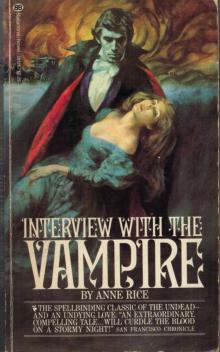 Interview with the Vampire
Interview with the Vampire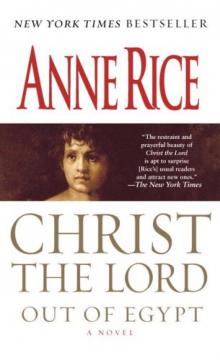 Christ the Lord: Out of Egypt
Christ the Lord: Out of Egypt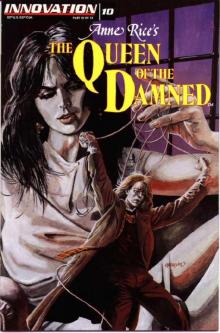 The Queen Of The Damned
The Queen Of The Damned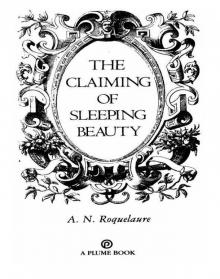 The Claiming of Sleeping Beauty
The Claiming of Sleeping Beauty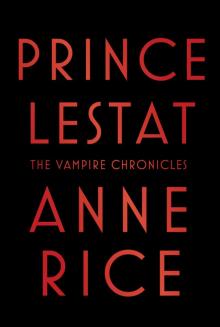 Prince Lestat
Prince Lestat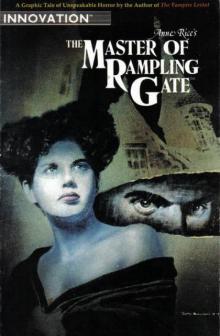 The Master of Rampling Gate
The Master of Rampling Gate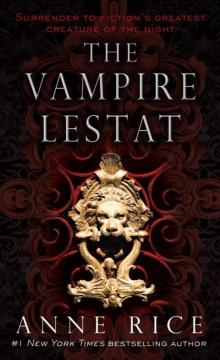 The Vampire Lestat
The Vampire Lestat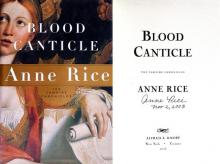 Blood Canticle
Blood Canticle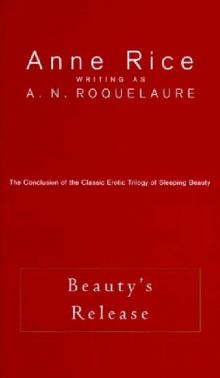 Beauty's Release
Beauty's Release Pandora
Pandora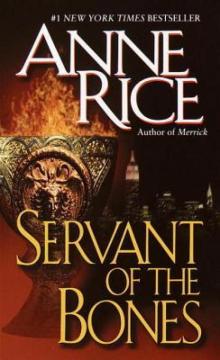 Servant of the Bones
Servant of the Bones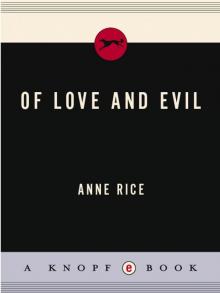 Of Love and Evil
Of Love and Evil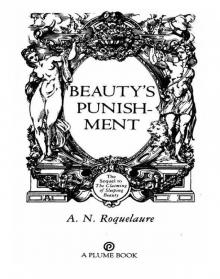 Beauty's Punishment
Beauty's Punishment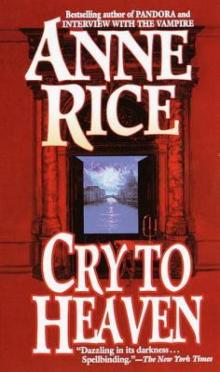 Cry to Heaven
Cry to Heaven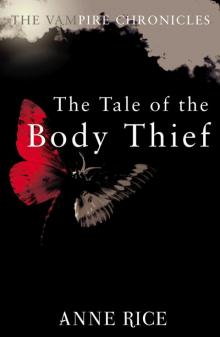 The Tale of the Body Thief
The Tale of the Body Thief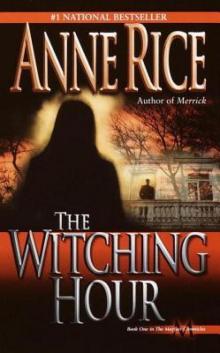 The Witching Hour
The Witching Hour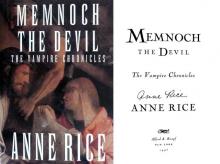 Memnoch the Devil
Memnoch the Devil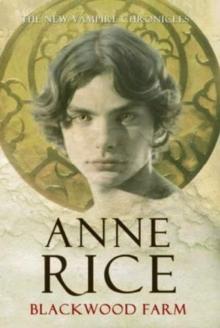 Blackwood Farm
Blackwood Farm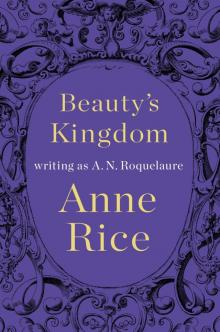 Beauty's Kingdom
Beauty's Kingdom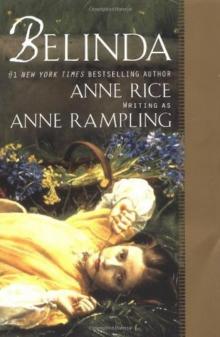 Belinda
Belinda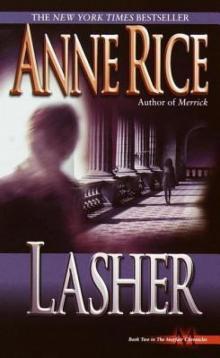 Lasher
Lasher Vittorio, the Vampire
Vittorio, the Vampire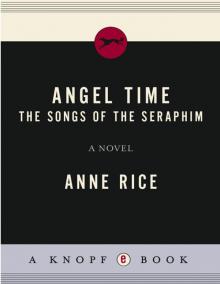 Angel Time
Angel Time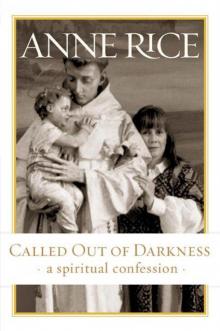 Called Out of Darkness: A Spiritual Confession
Called Out of Darkness: A Spiritual Confession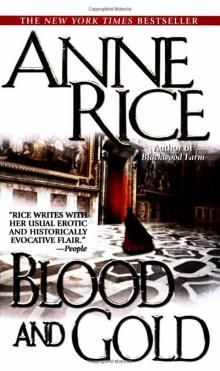 Blood And Gold
Blood And Gold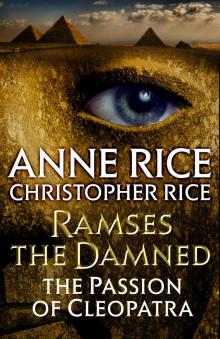 The Passion of Cleopatra
The Passion of Cleopatra Taltos
Taltos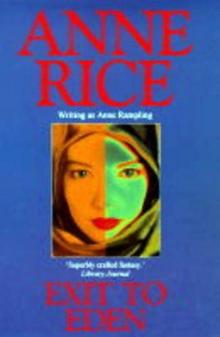 Exit to Eden
Exit to Eden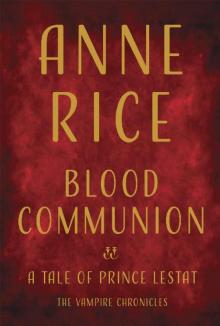 Blood Communion (The Vampire Chronicles #13)
Blood Communion (The Vampire Chronicles #13) The Wolf Gift
The Wolf Gift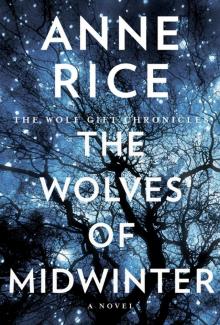 The Wolves of Midwinter
The Wolves of Midwinter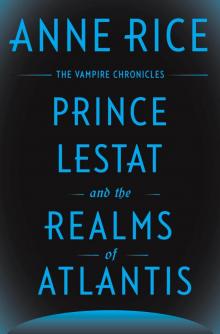 Prince Lestat and the Realms of Atlantis
Prince Lestat and the Realms of Atlantis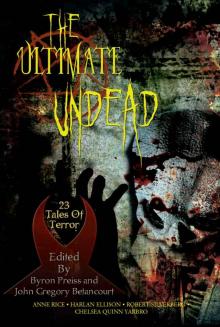 The Ultimate Undead
The Ultimate Undead The Vampire Lestat tvc-2
The Vampire Lestat tvc-2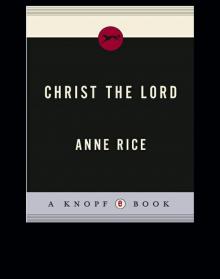 The Road to Cana
The Road to Cana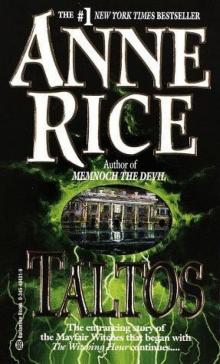 Taltos lotmw-3
Taltos lotmw-3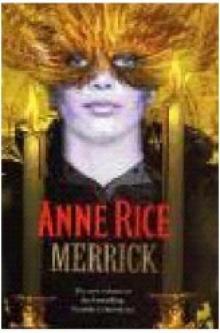 Merrick tvc-7
Merrick tvc-7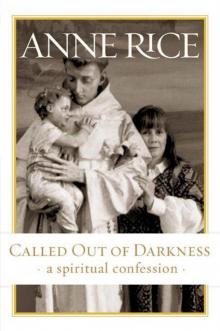 Called Out of Darkness
Called Out of Darkness Pandora - New Vampires 01
Pandora - New Vampires 01 Bllod and Gold
Bllod and Gold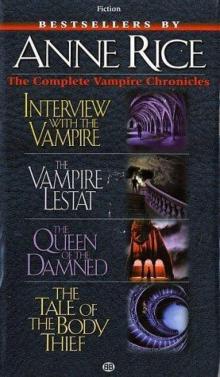 The Queen Of the Damned: Vampire Chronicles
The Queen Of the Damned: Vampire Chronicles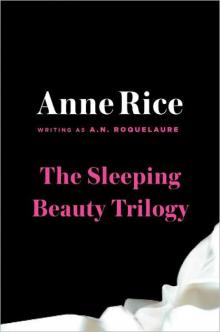 The Sleeping Beauty Trilogy
The Sleeping Beauty Trilogy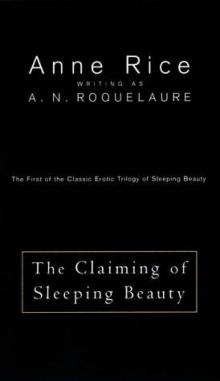 The Claiming of Sleeping Beauty b-1
The Claiming of Sleeping Beauty b-1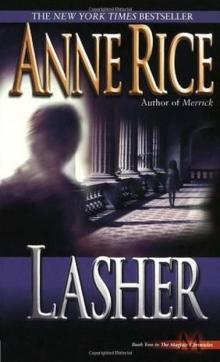 Lasher lotmw-2
Lasher lotmw-2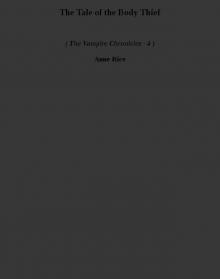 The Tale of the Body Thief tvc-4
The Tale of the Body Thief tvc-4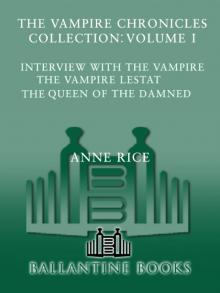 The Vampire Chronicles Collection
The Vampire Chronicles Collection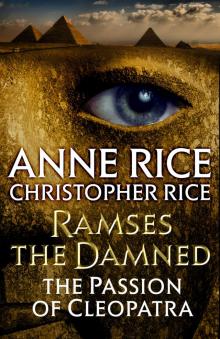 Ramses the Damned
Ramses the Damned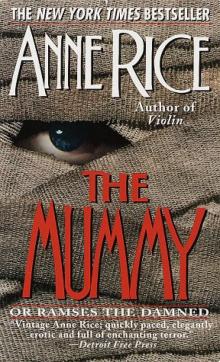 The Mummy - or Ramses the Damned
The Mummy - or Ramses the Damned Vittorio, The Vampire - New Vampires 02
Vittorio, The Vampire - New Vampires 02 The Vampire Armand tvc-6
The Vampire Armand tvc-6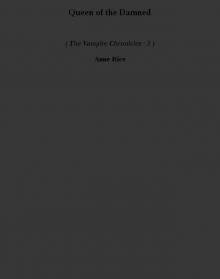 Queen of the Damned tvc-3
Queen of the Damned tvc-3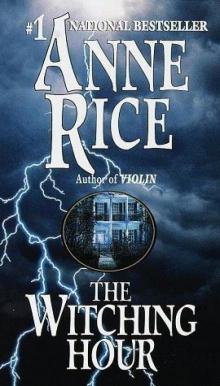 The witching hour lotmw-1
The witching hour lotmw-1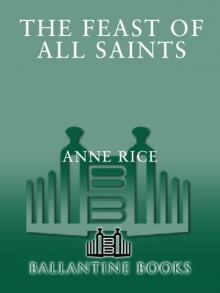 Feast of All Saints
Feast of All Saints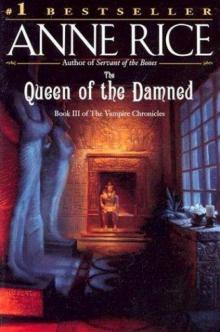 Queen of the Damned
Queen of the Damned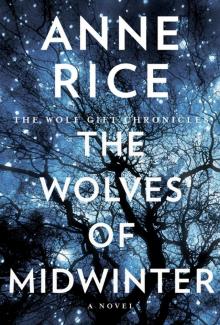 The Wolves of Midwinter twgc-2
The Wolves of Midwinter twgc-2 The Mummy
The Mummy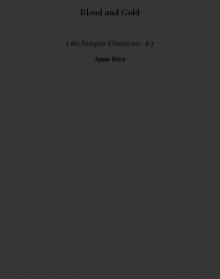 Blood and Gold tvc-8
Blood and Gold tvc-8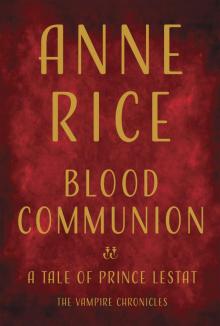 Blood Communion
Blood Communion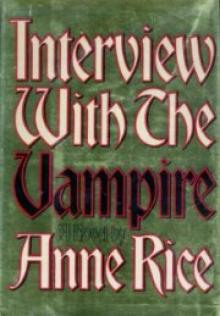 Interview with the Vampire tvc-1
Interview with the Vampire tvc-1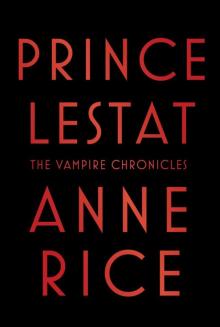 Prince Lestat: The Vampire Chronicles
Prince Lestat: The Vampire Chronicles